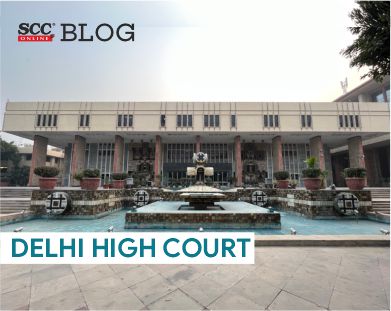Delhi High Court: A Single Judge Bench of Navin Chawla, J. granted permanent injunction to Microsoft Corporation in a copyright infringement case of its products Microsoft Windows, Microsoft Office, and Windows Server and awarded Rs. 20 lakhs as damages to Microsoft Corporation.
Background
Microsoft Corporation (plaintiff) was set up in 1975 under the laws of the State of Washington and was a global software publisher for personal and business computing. The software products of plaintiffs include operating systems for servers, personal computers, and intelligent devices; server applications for distributed computing environments, information worker productivity applications and software development tools.
Plaintiff’s popular software products included the ‘Microsoft Windows Operating Systems’ (various versions), application software such as ‘Microsoft Office’ and development tools like ‘Visual Studio’ and ‘Visual C++’. The ‘Microsoft Windows’ family of the plaintiffs included software tools like Windows 1.0, Windows 95, Windows 98, Windows Me, Windows 2000, Window XP Home, and Windows XP Professional. The ‘Microsoft Office’ family included versions like Office 97, Office 2000, Office XP, Office 2003, Office 2007, Office 2010, and the product line included Microsoft Access, Microsoft Excel, FrontPage, Microsoft Word, PowerPoint, Microsoft Project, Publisher, and Outlook.
Plaintiff stated that the software programmes developed and marketed by them would fall within the definition of ‘computer programmes’ under Section 2(ffc) and were also included in the definition of a ‘literary work’ under Section 2(o) of the Copyright Act, 1957 (Act). Further, the plaintiffs stated that on account of both the USA and India being member-countries of the Berne Convention, Universal Copyright Conventions, and the World Trade Organization (WTO), the rights of authors in the USA would be equally protected under the aegis of Section 40 of the Act read with the International Copyright Order, 1999.
Submissions on behalf of the Plaintiffs
It was submitted that the plaintiffs suffer incalculable damages to their intellectual property rights on account of various instances of copyright infringement of their software programmes. In 2010, the plaintiffs came to know that the defendants were illegally using their software programmes in which the copyright of the plaintiffs’ vests, including Microsoft Windows, Microsoft Office, and Windows Server. Plaintiffs conducted investigation, through which it was found that defendants had 130 computer systems and most of it had the plaintiff’s software programmes installed in it, while the licenses held by the defendants did not match their usage and indicated that the defendants were indulging in the unlicensed use of the plaintiff’s software programmes.
Plaintiffs sent repeated requests to the defendants to conduct a Software Management Assessment Review Program and comprehensively evaluate the extent of the piracy of the plaintiffs’ software by the defendants. However, despite repeated follow ups made by the plaintiffs, the defendants chose not to respond to the said requests. Thus, defendants unauthorized reproduction of the plaintiff’s copyrighted software amounted to copyright infringement under Section 51 of the Act.
Analysis, Law, and Decision
The Court in 2010, granted an ad-interim ex-parte order of injunction in favour of the plaintiffs and against the defendants, restraining the defendants from infringing the plaintiffs’ software program. Subsequently, this Court referred the parties to the Delhi High Court Mediation and Conciliation Centre to settle their inter se disputes, however, the parties failed to arrive at an amicable settlement. In 2018, the defendants were proceeded ex parte.
The Court noted that the plaintiffs were able to prove that they were the owner of the copyright in the computer programs and the Supplementary User Instructions and Manuals and were entitled to the exclusive rights flowing from such ownership as set out in Section 14 of the Act. Further, the Court opined that the defendants had failed to show proof of genuine use of the plaintiffs’ software programmes for all the installations that were in use at their organizations.
The Court held that it was clear that the defendants had infringed upon the copyright of the plaintiffs in their software programmes and the plaintiffs had made out a case of permanent injunction against the defendants. Further, the Court held that plaintiffs were entitled to the damages of Rs. 20 lakhs.
[Microsoft Corporation v. Rupesh Waidande, 2022 SCC OnLine Del 4432, decided on 14-12-2022]
Advocates who appeared in this case :
For the Plaintiff(s): Advocate Bharat S. Kumar;
For the Defendant(s): Advocate Ajunee Singh.







